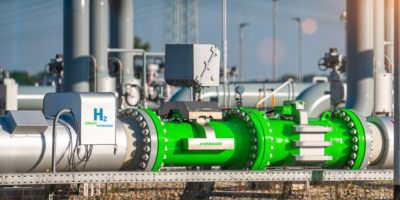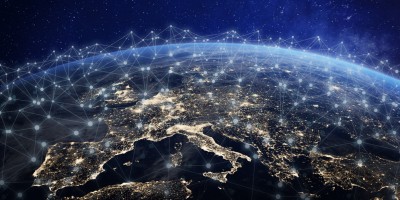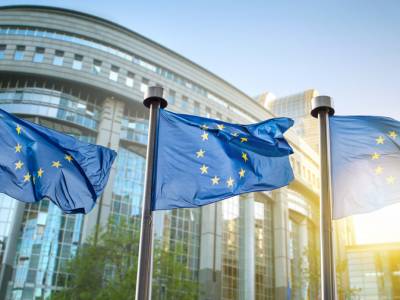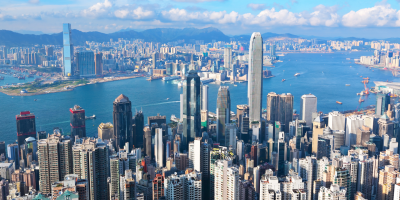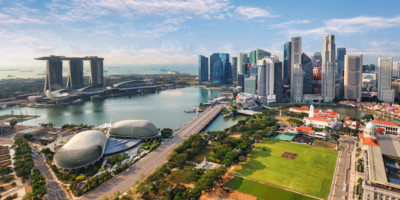-
Vietnam
Vietnam | Nuovo decreto sui servizi Internet e le informazioni online
9 Dicembre 2024
- Information Technology
- Investimenti esteri
- Privacy e Trattamento dati
Il Governo del Vietnam ha emanato un nuovo decreto che regola i servizi internet e le informazioni online, che entrerà in vigore il 25 dicembre 2024. Il decreto n. 147/2024/ND-CP, promulgato il 9 novembre 2024, sostituisce il precedente decreto n. 72/2013/ND-CP e le sue modifiche.
Questa legislazione completa, che comprende oltre 200 pagine e 62 moduli allegati, affronta un’ampia gamma di argomenti relativi a Internet e all’online. Tra questi, i servizi internet, i nomi di dominio, la fornitura di informazioni transfrontaliere, i servizi di social network, i siti web di informazioni aggregate, i servizi di giochi online e i servizi di app store.
Disposizioni chiave
Fornitura di informazioni transfrontaliere
I fornitori di servizi offshore, compresi quelli che offrono servizi di social network e app store su base transfrontaliera, sono soggetti a requisiti più severi se affittano l’archiviazione dei dati in Vietnam o se raggiungono una soglia di 100.000 o più visite totali al mese dal Vietnam per sei mesi consecutivi. Questi fornitori devono:
- Comunicare all’Autorità per la radiodiffusione e l’informazione elettronica (ABEI) i propri dati di contatto.
- Monitorare e rimuovere i contenuti illegali
- Memorizzare e gestire i dati degli utenti come richiesto
- Autenticare gli account degli utenti dei social network utilizzando numeri di cellulare o numeri di identificazione vietnamiti.
- Presentare relazioni annuali e ad hoc all’ABEI.
- Gestire i reclami degli utenti
Solo i fornitori transfrontalieri che hanno comunicato all’ABEI i propri recapiti possono offrire servizi di live stream e di generazione di reddito. La mancata osservanza può comportare blocchi e sanzioni.
Reti sociali
Il Decreto 147 stabilisce regimi distinti per i servizi di social network offshore e onshore:
- I fornitori offshore che soddisfano la soglia di cui sopra devono comunicare all’ABEI le loro informazioni di contatto.
- I provider onshore che raggiungono 10.000 visite totali al mese per sei mesi consecutivi o 1.000 utenti regolari al mese devono ottenere una Licenza per Social Network.
- Altri fornitori onshore con traffico ridotto devono ottenere un certificato di notifica dall’ABEI.
Il decreto regola anche le attività di livestream, stabilendo le condizioni per i fornitori di servizi di social network per offrire funzioni di livestream e per gli account di social network per condurre attività di livestream.
Giochi online
Alle organizzazioni e agli individui stranieri è vietato fornire giochi online agli utenti dei servizi in Vietnam su base transfrontaliera. Per offrire tali servizi, devono creare un’impresa locale in Vietnam.
Si prevede che questo nuovo decreto avrà un impatto significativo sui fornitori di servizi onshore e offshore nei rispettivi settori e potrebbe rendere più severo il panorama normativo per i servizi Internet e la fornitura di informazioni online in Vietnam.
“Questo accordo non è solo un’opportunità economica. È una necessità politica“. Nell’attuale contesto geopolitico, caratterizzato da un crescente protezionismo e da importanti conflitti regionali, la dichiarazione di Ursula von der Leyen la dice lunga.
Anche se c’è ancora molta strada da fare prima che l’accordo venga approvato internamente a ciascun blocco ed entri in vigore, la pietra miliare è molto significativa. Ci sono voluti 25 anni dall’inizio dei negoziati tra il Mercosur e l’Unione Europea per raggiungere un testo di consenso. L’impatto sarà notevole. Insieme, i blocchi rappresentano un PIL di oltre 22 mila miliardi di dollari e ospitano oltre 700 milioni di persone.
Vediamo le informazioni più importanti sul contenuto dell’accordo e sul suo stato di avanzamento.
Che cos’è l’accordo EU-Mercosur?
L’accordo è stato firmato come trattato commerciale, con l’obiettivo principale di ridurre le tariffe di importazione e di esportazione, eliminare le barriere burocratiche e facilitare il commercio tra i Paesi del Mercosur e i membri dell’Unione Europea. Inoltre, il patto prevede impegni in aree quali la sostenibilità, i diritti del lavoro, la cooperazione tecnologica e la protezione dell’ambiente.
Il Mercosur (Mercato Comune del Sud) è un blocco economico creato nel 1991 da Brasile, Argentina, Paraguay e Uruguay. Attualmente, Bolivia e Cile partecipano come membri associati, accedendo ad alcuni accordi commerciali, ma non sono pienamente integrati nel mercato comune. D’altra parte, l’Unione Europea, con i suoi 27 membri (20 dei quali hanno adottato la moneta comune), è un’unione più ampia con una maggiore integrazione economica e sociale rispetto al Mercosur.
Cosa prevede l’accordo UE-Mercosur?
Scambio di beni:
- Riduzione o eliminazione delle tariffe sui prodotti scambiati tra i blocchi, come carne, cereali, frutta, automobili, vini e prodotti lattiero-caseari (la riduzione prevista riguarderà oltre il 90% delle merci scambiate tra i blocchi).
- Accesso facilitato ai prodotti europei ad alta tecnologia e industrializzati.
Commercio di servizi:
- Espande l’accesso ai servizi finanziari, alle telecomunicazioni, ai trasporti e alla consulenza per le imprese di entrambi i blocchi.
Movimento di persone:
- Fornisce agevolazioni per visti temporanei per lavoratori qualificati, come professionisti della tecnologia e ingegneri, promuovendo lo scambio di talenti.
- Incoraggia i programmi di cooperazione educativa e culturale.
Sostenibilità e ambiente:
- Include impegni per combattere la deforestazione e raggiungere gli obiettivi dell’Accordo di Parigi sul cambiamento climatico.
- Prevede sanzioni per le violazioni degli standard ambientali.
Proprietà intellettuale e normative:
- Protegge le indicazioni geografiche dei formaggi e dei vini europei e del caffè e della cachaça sudamericani.
- Armonizza gli standard normativi per ridurre la burocrazia ed evitare le barriere tecniche.
Diritti del lavoro:
- Impegno per condizioni di lavoro dignitose e rispetto degli standard dell’Organizzazione Internazionale del Lavoro (OIL).
Quali benefici aspettarsi?
- Accesso a nuovi mercati: Le aziende del Mercosur avranno un accesso più facile al mercato europeo, che conta più di 450 milioni di consumatori, mentre i prodotti europei diventeranno più competitivi in Sud America.
- Riduzione dei costi: L’eliminazione o la riduzione delle tariffe doganali potrebbe abbassare i prezzi di prodotti come vini, formaggi e automobili e favorire le esportazioni sudamericane di carne, cereali e frutta.
- Rafforzamento delle relazioni diplomatiche: L’accordo simboleggia un ponte di cooperazione tra due regioni storicamente legate da vincoli culturali ed economici.
Quali sono i prossimi passo?
La firma è solo il primo passo. Affinché l’accordo entri in vigore, deve essere ratificato da entrambi i blocchi e il processo di approvazione è ben distinto tra loro, poiché il Mercosur non ha un Consiglio o un Parlamento comuni.
Nell’Unione Europea, il processo di ratifica prevede molteplici passaggi istituzionali:
- Consiglio dell’Unione Europea: I ministri degli Stati membri discuteranno e approveranno il testo dell’accordo. Questa fase è cruciale, poiché ogni Paese è rappresentato e può sollevare specifiche preoccupazioni nazionali.
- Parlamento europeo: Dopo l’approvazione del Consiglio, il Parlamento europeo, composto da deputati eletti, vota per la ratifica dell’accordo. Il dibattito in questa fase può includere gli impatti ambientali, sociali ed economici.
- Parlamenti nazionali: Nei casi in cui l’accordo riguardi competenze condivise tra il blocco e gli Stati membri (come le normative ambientali), deve essere approvato anche dai parlamenti di ciascun Paese membro. Questo può essere impegnativo, dato che Paesi come la Francia e l’Irlanda hanno già espresso preoccupazioni specifiche sulle questioni agricole e ambientali.
Nel Mercosur, l‘approvazione dipende da ciascun Paese membro:
- Congressi nazionali: Il testo dell’accordo viene sottoposto ai parlamenti di Brasile, Argentina, Paraguay e Uruguay. Ogni congresso valuta in modo indipendente e l’approvazione dipende dalla maggioranza politica di ciascun Paese.
- Contesto politico: I Paesi del Mercosur hanno realtà politiche diverse. In Brasile, ad esempio, le questioni ambientali possono suscitare accesi dibattiti, mentre in Argentina l’impatto sulla competitività agricola può essere al centro della discussione.
- Coordinamento regionale: Anche dopo l’approvazione nazionale, è necessario garantire che tutti i membri del Mercosur ratifichino l’accordo, poiché il blocco agisce come un’unica entità negoziale.
Seguite questo blog, vi terremo aggiornato sugli sviluppi.
Vietnam has embraced the global minimum tax (GMT) to harmonize its tax policies with global standards. While this new tax regime is anticipated to have certain adverse effects on foreign direct investment (FDI), the Vietnamese government is devising proactive measures to mitigate these repercussions and maintain the country’s appeal as an investment haven.
Key Ramifications of the GMT for Vietnam
The GMT mandates multinational corporations (MNCs) with consolidated revenue surpassing €750 million to pay a minimum tax rate of 15%, irrespective of the tax rate in the country where they operate. In Vietnam, this translates to the concept of a qualified domestic minimum top-up tax (QDMTT).
The QDMTT places an extra tax burden on foreign-invested enterprises (FIEs) that are part of an MNC, potentially deterring them from investing or expanding in Vietnam. This is particularly concerning for industries that heavily rely on tax incentives to attract FDI.
Vietnam’s Response: Investment Support Fund and Proactive Measures
In response to the anticipated negative impacts of the GMT, the Vietnamese government has established an investment support fund (Fund) to incentivize investments in targeted sectors. The Fund is primarily funded by proceeds from the State Budget generated by the GMT.
Eligible enterprises for the Fund are those engaged in high-tech product manufacturing, high-tech enterprises, high-tech application projects, and enterprises with investment projects in research and development centers. Eligibility is based on capital size, annual revenue, industry, or technology utilized.
Eligible taxpayers can receive cash subsidies for five specific expense categories:
- Human resource training and development
- Research and development expenses
- Fixed asset investments
- High-tech manufacturing expenses
- Social infrastructure systems
To qualify for Fund benefits, eligible taxpayers must submit an application dossier to the Fund Office in Hanoi between August 15th and 30th of the year following the incurred Supported Expenses. Each Supported Expense category will have a distinct reimbursement ratio, and support payments will be contingent on the actual expenses incurred by eligible taxpayers.
In addition to the Fund, the Vietnamese government is also implementing proactive measures to address the concerns of foreign investors. These measures include:
- Focusing on targeted industries with high growth potential that align with Vietnam’s strategic development goals
- Utilizing the additional revenue collected from top-up tax to enhance infrastructure and labor quality
- Considering cash grants for long-term qualified investments in high-tech industries
Conclusion
The introduction of the GMT poses challenges for Vietnam in attracting FDI. However, the government’s establishment of the investment support fund and proactive measures demonstrates its commitment to safeguarding the country’s competitiveness as an investment destination. By combining targeted support with infrastructure improvements and incentives for specific industries, Vietnam can mitigate the negative impacts of the GMT and continue to attract foreign investors.
Summary
Egypt aims to be Africa’s first green hydrogen producer by incentivizing companies to invest in the sector. Collaborative efforts with Germany and European companies are underway to enhance hydrogen projects and transport. Incentives include financial subsidies, tax exemptions, and administrative advantages, contingent on project conditions like commissioning, foreign funding, local materials use, and community development.
What is the status of green energy in Egypt and what role does green hydrogen play in this?
It is currently estimated that Egypt has the potential to generate 350 GW of wind energy and about 650 GW of solar energy per year, as per the Minister of Electricity and Renewable Energy’s (Mohamed Shaker El-Marqabi) declaration. As part of its National Climate Strategy 2050, Egypt has set itself the goal of reducing its carbon emissions, promoting the use of renewable energy sources and using alternative forms of energy, including green hydrogen. The importance the Egyptian government attaches to green hydrogen is evident, not least with the recent cabinet meeting on 17th of May 2023.
With a view to becoming the first African country to produce green hydrogen, new incentives for green hydrogen and derivatives projects were presented at the cabinet meeting. Based on an investment of 13 billion USD, the legal and financial benefits (new incentive package) that companies in this field can benefit from in the future were presented.
What agreements exist between Egypt and third countries to promote green hydrogen?
Agreement between Egypt and Germany on green hydrogen
The new incentive package was preceded by a meeting between the German-Egyptian Partnership for Green Hydrogen Projects committee and Egyptian officials on the 14th of March 2023. This resulted in a joint roadmap for supporting hydrogen production companies and promoting hydrogen transport and marketing. At this meeting, it was decided that the parties, the Egyptian Minister of International Cooperation (Rania Al-Mashat) and the Egyptian Minister of Public Enterprises (Mahmoud Esmat), will establish a platform to promote the use of green hydrogen.
At the above-mentioned meeting, Egypt and Germany signed two Memoranda of Understanding (MoU) to enhance cooperation in the field of green hydrogen.
The Egyptian Government also recently signed other MoUs with seven European leading companies and global alliances to produce new and renewable energy, to establish green hydrogen production complexes in Ain Al-Sokhna and the Red Sea Governorate.
The German-Egyptian cooperation in the field of green hydrogen follows Egypt’s goal to establish itself as a hub for producing green hydrogen.
Agreement between Egypt and third countries on green hydrogen
Egypt has also partnered with the European Union to advance green hydrogen production. Furthermore, in 2022, on the occasion of COP27, Egypt signed a series of MoUs with several international organisations to engage foreign investment in green hydrogen production and make Egypt a transit route for clean energy to Europe.
MoUs with global companies and alliances have defined the Red Sea Governorate as the location where green hydrogen projects will be carried out in the future.
Are there investment incentives for the production of green hydrogen in Egypt?
In the cabinet meeting of 17th of May 2023, the Egyptian Prime Minister Mustafa Madbuli stated that Egypt was offering the “largest” package of investment incentives and facilitations to companies wishing to invest in green hydrogen production projects in Egypt. He further announced the formation of a working group composed of representatives of the authorities involved to elaborate these investment incentives.
The statement indicated that companies involved in green energy projects in Egypt will benefit from incentives set out in the Law drafted in the cabinet meeting of 17th of May 2023 and Investment Law No. 72 of 2017. This targets companies involved in the “production, storage and export of green hydrogen”.
What investment incentives for the production of green hydrogen in Egypt are provided for in the draft Law of 17th of May 2023?
Financial incentives
Investments in the green hydrogen sector are subsidised in the amount of 33 % to 55 % of the income tax payable. The Ministry of Finance pays the subsidy within 45 days after the deadline for filing the tax return. The subsidy itself is not taxable. The exact conditions for the payment of the subsidy are still to be determined by the Cabinet.
All machinery, equipment, materials, consumables and vehicles (except private vehicles) used in green hydrogen and derivative projects are exempt from VAT.
No VAT is levied on exports of green hydrogen and its derivatives.
The Ministry of Finance pays most of the duties and certification costs associated with setting up the business and all import duties on imported goods used by the establishment. Further, it pays the taxes that would have been levied on the real estate used for the activity, if any.
Administrative incentives
Projects in the field of green hydrogen or its derivatives benefit from the so-called golden licence, as it is called in the Investment Law No. 72 of 2017.
All raw materials, spare parts and vehicles required for operations can be freely imported or exported directly or through distributors without the need for registration in the Importers’ Register.
The incentives apply to projects and their extensions throughout the contract period if the project agreements are concluded within a maximum of 7 years from the date of commercial commissioning.
Requirements
The investment incentives apply when:
- the project is commissioned within 5 years of the signing of the project agreement
- at least 70 % of the investment costs come from foreign funds
- at least 20 % of the locally used materials originate from Egypt
- training programmes are set up for local workers and know-how is shared
- the project company draws up a development plan for the communities in which it will operate
What investment incentives for the production of green hydrogen in Egypt are provided for in the Investment Law No. 72 of 2017?
The tax incentives granted under the Investment Law No. 72 of 2017 provide for special, general and additional incentives.
Special incentives
These are tax reductions limited to 7 years for projects that are started within 3 years (extendable to 6 years) after the provisions of the Law No. 72 of 2017 came into force (i.e. by October 2023). The investment costs consist of equity capital, long-term loans to finance the construction of the project’s movable and immovable assets, and working capital. The tax base is the taxable net profit, which is taxed at the following rates:
1) Tax exemption on 50 % of the investment costs for the implementation of a project in geographical locations with the greatest development needs (underdeveloped locations) designated by the Central Agency for Public Mobilization and Statistics (CAPMS)
The law identifies these sites as “Zone A”. According to the implementing regulations, “Zone A” includes:
- the Suez Canal Economic Zone
- the Golden Triangle Special Economic Zone
- the New Administrative Capital Zone
- the south of Giza province
- the provinces of Port Said, Ismailia and Suez (east of the canal) connected to the Suez Canal.
- border provinces, including Red Sea province south of Safaga
- the provinces in upper Egypt
- other areas in greatest need of development (to be determined by the Prime Minister)
2) Tax exemption on 30 % of the investment costs of a project located in the remaining geographical areas outside “Zone A”, referred to as “Zone B”, and operating in certain sectors.
This includes projects that:
- are active in the field of renewable energies
- export their products outside Egypt
- be carried out by a small or medium-sized (SME)
General incentives
Parallel to the special investment incentives, general investment incentives also apply. For example, projects are exempt from certain administrative requirements and fees for a period of 5 years from the date of their registration in the commercial register. Furthermore, temporary duty-free imports and exports are possible.
Additional incentives
Additional investment incentives may also be granted by decision of the Council of Ministers:
- special customs offices for the export or import of the investment project
- bearing of the value of the utility supply (such as electricity and water supply) of the property intended for the investment project or part thereof by the State
- partial bearing of the costs of a technical training programme for employees by the State
- reimbursement of half of the value of the land allocated for industrial projects, provided that the activity was started within two years of the transfer of the land
- free allocation of land for certain strategic activities
- under certain conditions, granting of a general permit for the construction, operation and management of the project as well as for the provision of the land required for this purpose. This permit shall also be deemed to be a building permit and shall be effective in its own right without any further action being required. In December 2022, the Egyptian Cabinet granted general approval for several projects.
- incorporation shares of capital companies subject to the Investment Law No. 72 of 2017 may be traded during the first two fiscal years of the company, subject to the approval of the competent Minister
- simplified acquisition of real estate, provided it is used for the project
Takeaways
- Egypt’s Green Hydrogen Drive: Egypt is strategically embracing green hydrogen production as a pivotal element of its renewable energy vision. The country’s ambitious goals and extensive incentives underscore its commitment to becoming a leading player in the global green energy landscape.
- International Collaborations: Collaborations with Germany and European partners highlight Egypt’s proactive approach to international cooperation in advancing green hydrogen technologies. Memoranda of Understanding and joint roadmaps are facilitating knowledge exchange and investments for robust hydrogen projects.
- Comprehensive Incentive Framework: Egypt’s multifaceted incentive framework, including financial subsidies, tax exemptions, and administrative benefits, showcases the government’s determination to attract investments in green hydrogen production. Stringent conditions for benefiting from these incentives emphasize the nation’s dedication to sustainable practices and local community development.
Scrivi a Federico
L’accordo di libero scambio tra Unione Europea e Mercosur
9 Dicembre 2024
-
Argentina
-
Brasile
-
Italia
-
Uruguay
- Distribuzione
- Fisco e tasse
- Investimenti esteri
Il Governo del Vietnam ha emanato un nuovo decreto che regola i servizi internet e le informazioni online, che entrerà in vigore il 25 dicembre 2024. Il decreto n. 147/2024/ND-CP, promulgato il 9 novembre 2024, sostituisce il precedente decreto n. 72/2013/ND-CP e le sue modifiche.
Questa legislazione completa, che comprende oltre 200 pagine e 62 moduli allegati, affronta un’ampia gamma di argomenti relativi a Internet e all’online. Tra questi, i servizi internet, i nomi di dominio, la fornitura di informazioni transfrontaliere, i servizi di social network, i siti web di informazioni aggregate, i servizi di giochi online e i servizi di app store.
Disposizioni chiave
Fornitura di informazioni transfrontaliere
I fornitori di servizi offshore, compresi quelli che offrono servizi di social network e app store su base transfrontaliera, sono soggetti a requisiti più severi se affittano l’archiviazione dei dati in Vietnam o se raggiungono una soglia di 100.000 o più visite totali al mese dal Vietnam per sei mesi consecutivi. Questi fornitori devono:
- Comunicare all’Autorità per la radiodiffusione e l’informazione elettronica (ABEI) i propri dati di contatto.
- Monitorare e rimuovere i contenuti illegali
- Memorizzare e gestire i dati degli utenti come richiesto
- Autenticare gli account degli utenti dei social network utilizzando numeri di cellulare o numeri di identificazione vietnamiti.
- Presentare relazioni annuali e ad hoc all’ABEI.
- Gestire i reclami degli utenti
Solo i fornitori transfrontalieri che hanno comunicato all’ABEI i propri recapiti possono offrire servizi di live stream e di generazione di reddito. La mancata osservanza può comportare blocchi e sanzioni.
Reti sociali
Il Decreto 147 stabilisce regimi distinti per i servizi di social network offshore e onshore:
- I fornitori offshore che soddisfano la soglia di cui sopra devono comunicare all’ABEI le loro informazioni di contatto.
- I provider onshore che raggiungono 10.000 visite totali al mese per sei mesi consecutivi o 1.000 utenti regolari al mese devono ottenere una Licenza per Social Network.
- Altri fornitori onshore con traffico ridotto devono ottenere un certificato di notifica dall’ABEI.
Il decreto regola anche le attività di livestream, stabilendo le condizioni per i fornitori di servizi di social network per offrire funzioni di livestream e per gli account di social network per condurre attività di livestream.
Giochi online
Alle organizzazioni e agli individui stranieri è vietato fornire giochi online agli utenti dei servizi in Vietnam su base transfrontaliera. Per offrire tali servizi, devono creare un’impresa locale in Vietnam.
Si prevede che questo nuovo decreto avrà un impatto significativo sui fornitori di servizi onshore e offshore nei rispettivi settori e potrebbe rendere più severo il panorama normativo per i servizi Internet e la fornitura di informazioni online in Vietnam.
“Questo accordo non è solo un’opportunità economica. È una necessità politica“. Nell’attuale contesto geopolitico, caratterizzato da un crescente protezionismo e da importanti conflitti regionali, la dichiarazione di Ursula von der Leyen la dice lunga.
Anche se c’è ancora molta strada da fare prima che l’accordo venga approvato internamente a ciascun blocco ed entri in vigore, la pietra miliare è molto significativa. Ci sono voluti 25 anni dall’inizio dei negoziati tra il Mercosur e l’Unione Europea per raggiungere un testo di consenso. L’impatto sarà notevole. Insieme, i blocchi rappresentano un PIL di oltre 22 mila miliardi di dollari e ospitano oltre 700 milioni di persone.
Vediamo le informazioni più importanti sul contenuto dell’accordo e sul suo stato di avanzamento.
Che cos’è l’accordo EU-Mercosur?
L’accordo è stato firmato come trattato commerciale, con l’obiettivo principale di ridurre le tariffe di importazione e di esportazione, eliminare le barriere burocratiche e facilitare il commercio tra i Paesi del Mercosur e i membri dell’Unione Europea. Inoltre, il patto prevede impegni in aree quali la sostenibilità, i diritti del lavoro, la cooperazione tecnologica e la protezione dell’ambiente.
Il Mercosur (Mercato Comune del Sud) è un blocco economico creato nel 1991 da Brasile, Argentina, Paraguay e Uruguay. Attualmente, Bolivia e Cile partecipano come membri associati, accedendo ad alcuni accordi commerciali, ma non sono pienamente integrati nel mercato comune. D’altra parte, l’Unione Europea, con i suoi 27 membri (20 dei quali hanno adottato la moneta comune), è un’unione più ampia con una maggiore integrazione economica e sociale rispetto al Mercosur.
Cosa prevede l’accordo UE-Mercosur?
Scambio di beni:
- Riduzione o eliminazione delle tariffe sui prodotti scambiati tra i blocchi, come carne, cereali, frutta, automobili, vini e prodotti lattiero-caseari (la riduzione prevista riguarderà oltre il 90% delle merci scambiate tra i blocchi).
- Accesso facilitato ai prodotti europei ad alta tecnologia e industrializzati.
Commercio di servizi:
- Espande l’accesso ai servizi finanziari, alle telecomunicazioni, ai trasporti e alla consulenza per le imprese di entrambi i blocchi.
Movimento di persone:
- Fornisce agevolazioni per visti temporanei per lavoratori qualificati, come professionisti della tecnologia e ingegneri, promuovendo lo scambio di talenti.
- Incoraggia i programmi di cooperazione educativa e culturale.
Sostenibilità e ambiente:
- Include impegni per combattere la deforestazione e raggiungere gli obiettivi dell’Accordo di Parigi sul cambiamento climatico.
- Prevede sanzioni per le violazioni degli standard ambientali.
Proprietà intellettuale e normative:
- Protegge le indicazioni geografiche dei formaggi e dei vini europei e del caffè e della cachaça sudamericani.
- Armonizza gli standard normativi per ridurre la burocrazia ed evitare le barriere tecniche.
Diritti del lavoro:
- Impegno per condizioni di lavoro dignitose e rispetto degli standard dell’Organizzazione Internazionale del Lavoro (OIL).
Quali benefici aspettarsi?
- Accesso a nuovi mercati: Le aziende del Mercosur avranno un accesso più facile al mercato europeo, che conta più di 450 milioni di consumatori, mentre i prodotti europei diventeranno più competitivi in Sud America.
- Riduzione dei costi: L’eliminazione o la riduzione delle tariffe doganali potrebbe abbassare i prezzi di prodotti come vini, formaggi e automobili e favorire le esportazioni sudamericane di carne, cereali e frutta.
- Rafforzamento delle relazioni diplomatiche: L’accordo simboleggia un ponte di cooperazione tra due regioni storicamente legate da vincoli culturali ed economici.
Quali sono i prossimi passo?
La firma è solo il primo passo. Affinché l’accordo entri in vigore, deve essere ratificato da entrambi i blocchi e il processo di approvazione è ben distinto tra loro, poiché il Mercosur non ha un Consiglio o un Parlamento comuni.
Nell’Unione Europea, il processo di ratifica prevede molteplici passaggi istituzionali:
- Consiglio dell’Unione Europea: I ministri degli Stati membri discuteranno e approveranno il testo dell’accordo. Questa fase è cruciale, poiché ogni Paese è rappresentato e può sollevare specifiche preoccupazioni nazionali.
- Parlamento europeo: Dopo l’approvazione del Consiglio, il Parlamento europeo, composto da deputati eletti, vota per la ratifica dell’accordo. Il dibattito in questa fase può includere gli impatti ambientali, sociali ed economici.
- Parlamenti nazionali: Nei casi in cui l’accordo riguardi competenze condivise tra il blocco e gli Stati membri (come le normative ambientali), deve essere approvato anche dai parlamenti di ciascun Paese membro. Questo può essere impegnativo, dato che Paesi come la Francia e l’Irlanda hanno già espresso preoccupazioni specifiche sulle questioni agricole e ambientali.
Nel Mercosur, l‘approvazione dipende da ciascun Paese membro:
- Congressi nazionali: Il testo dell’accordo viene sottoposto ai parlamenti di Brasile, Argentina, Paraguay e Uruguay. Ogni congresso valuta in modo indipendente e l’approvazione dipende dalla maggioranza politica di ciascun Paese.
- Contesto politico: I Paesi del Mercosur hanno realtà politiche diverse. In Brasile, ad esempio, le questioni ambientali possono suscitare accesi dibattiti, mentre in Argentina l’impatto sulla competitività agricola può essere al centro della discussione.
- Coordinamento regionale: Anche dopo l’approvazione nazionale, è necessario garantire che tutti i membri del Mercosur ratifichino l’accordo, poiché il blocco agisce come un’unica entità negoziale.
Seguite questo blog, vi terremo aggiornato sugli sviluppi.
Vietnam has embraced the global minimum tax (GMT) to harmonize its tax policies with global standards. While this new tax regime is anticipated to have certain adverse effects on foreign direct investment (FDI), the Vietnamese government is devising proactive measures to mitigate these repercussions and maintain the country’s appeal as an investment haven.
Key Ramifications of the GMT for Vietnam
The GMT mandates multinational corporations (MNCs) with consolidated revenue surpassing €750 million to pay a minimum tax rate of 15%, irrespective of the tax rate in the country where they operate. In Vietnam, this translates to the concept of a qualified domestic minimum top-up tax (QDMTT).
The QDMTT places an extra tax burden on foreign-invested enterprises (FIEs) that are part of an MNC, potentially deterring them from investing or expanding in Vietnam. This is particularly concerning for industries that heavily rely on tax incentives to attract FDI.
Vietnam’s Response: Investment Support Fund and Proactive Measures
In response to the anticipated negative impacts of the GMT, the Vietnamese government has established an investment support fund (Fund) to incentivize investments in targeted sectors. The Fund is primarily funded by proceeds from the State Budget generated by the GMT.
Eligible enterprises for the Fund are those engaged in high-tech product manufacturing, high-tech enterprises, high-tech application projects, and enterprises with investment projects in research and development centers. Eligibility is based on capital size, annual revenue, industry, or technology utilized.
Eligible taxpayers can receive cash subsidies for five specific expense categories:
- Human resource training and development
- Research and development expenses
- Fixed asset investments
- High-tech manufacturing expenses
- Social infrastructure systems
To qualify for Fund benefits, eligible taxpayers must submit an application dossier to the Fund Office in Hanoi between August 15th and 30th of the year following the incurred Supported Expenses. Each Supported Expense category will have a distinct reimbursement ratio, and support payments will be contingent on the actual expenses incurred by eligible taxpayers.
In addition to the Fund, the Vietnamese government is also implementing proactive measures to address the concerns of foreign investors. These measures include:
- Focusing on targeted industries with high growth potential that align with Vietnam’s strategic development goals
- Utilizing the additional revenue collected from top-up tax to enhance infrastructure and labor quality
- Considering cash grants for long-term qualified investments in high-tech industries
Conclusion
The introduction of the GMT poses challenges for Vietnam in attracting FDI. However, the government’s establishment of the investment support fund and proactive measures demonstrates its commitment to safeguarding the country’s competitiveness as an investment destination. By combining targeted support with infrastructure improvements and incentives for specific industries, Vietnam can mitigate the negative impacts of the GMT and continue to attract foreign investors.
Summary
Egypt aims to be Africa’s first green hydrogen producer by incentivizing companies to invest in the sector. Collaborative efforts with Germany and European companies are underway to enhance hydrogen projects and transport. Incentives include financial subsidies, tax exemptions, and administrative advantages, contingent on project conditions like commissioning, foreign funding, local materials use, and community development.
What is the status of green energy in Egypt and what role does green hydrogen play in this?
It is currently estimated that Egypt has the potential to generate 350 GW of wind energy and about 650 GW of solar energy per year, as per the Minister of Electricity and Renewable Energy’s (Mohamed Shaker El-Marqabi) declaration. As part of its National Climate Strategy 2050, Egypt has set itself the goal of reducing its carbon emissions, promoting the use of renewable energy sources and using alternative forms of energy, including green hydrogen. The importance the Egyptian government attaches to green hydrogen is evident, not least with the recent cabinet meeting on 17th of May 2023.
With a view to becoming the first African country to produce green hydrogen, new incentives for green hydrogen and derivatives projects were presented at the cabinet meeting. Based on an investment of 13 billion USD, the legal and financial benefits (new incentive package) that companies in this field can benefit from in the future were presented.
What agreements exist between Egypt and third countries to promote green hydrogen?
Agreement between Egypt and Germany on green hydrogen
The new incentive package was preceded by a meeting between the German-Egyptian Partnership for Green Hydrogen Projects committee and Egyptian officials on the 14th of March 2023. This resulted in a joint roadmap for supporting hydrogen production companies and promoting hydrogen transport and marketing. At this meeting, it was decided that the parties, the Egyptian Minister of International Cooperation (Rania Al-Mashat) and the Egyptian Minister of Public Enterprises (Mahmoud Esmat), will establish a platform to promote the use of green hydrogen.
At the above-mentioned meeting, Egypt and Germany signed two Memoranda of Understanding (MoU) to enhance cooperation in the field of green hydrogen.
The Egyptian Government also recently signed other MoUs with seven European leading companies and global alliances to produce new and renewable energy, to establish green hydrogen production complexes in Ain Al-Sokhna and the Red Sea Governorate.
The German-Egyptian cooperation in the field of green hydrogen follows Egypt’s goal to establish itself as a hub for producing green hydrogen.
Agreement between Egypt and third countries on green hydrogen
Egypt has also partnered with the European Union to advance green hydrogen production. Furthermore, in 2022, on the occasion of COP27, Egypt signed a series of MoUs with several international organisations to engage foreign investment in green hydrogen production and make Egypt a transit route for clean energy to Europe.
MoUs with global companies and alliances have defined the Red Sea Governorate as the location where green hydrogen projects will be carried out in the future.
Are there investment incentives for the production of green hydrogen in Egypt?
In the cabinet meeting of 17th of May 2023, the Egyptian Prime Minister Mustafa Madbuli stated that Egypt was offering the “largest” package of investment incentives and facilitations to companies wishing to invest in green hydrogen production projects in Egypt. He further announced the formation of a working group composed of representatives of the authorities involved to elaborate these investment incentives.
The statement indicated that companies involved in green energy projects in Egypt will benefit from incentives set out in the Law drafted in the cabinet meeting of 17th of May 2023 and Investment Law No. 72 of 2017. This targets companies involved in the “production, storage and export of green hydrogen”.
What investment incentives for the production of green hydrogen in Egypt are provided for in the draft Law of 17th of May 2023?
Financial incentives
Investments in the green hydrogen sector are subsidised in the amount of 33 % to 55 % of the income tax payable. The Ministry of Finance pays the subsidy within 45 days after the deadline for filing the tax return. The subsidy itself is not taxable. The exact conditions for the payment of the subsidy are still to be determined by the Cabinet.
All machinery, equipment, materials, consumables and vehicles (except private vehicles) used in green hydrogen and derivative projects are exempt from VAT.
No VAT is levied on exports of green hydrogen and its derivatives.
The Ministry of Finance pays most of the duties and certification costs associated with setting up the business and all import duties on imported goods used by the establishment. Further, it pays the taxes that would have been levied on the real estate used for the activity, if any.
Administrative incentives
Projects in the field of green hydrogen or its derivatives benefit from the so-called golden licence, as it is called in the Investment Law No. 72 of 2017.
All raw materials, spare parts and vehicles required for operations can be freely imported or exported directly or through distributors without the need for registration in the Importers’ Register.
The incentives apply to projects and their extensions throughout the contract period if the project agreements are concluded within a maximum of 7 years from the date of commercial commissioning.
Requirements
The investment incentives apply when:
- the project is commissioned within 5 years of the signing of the project agreement
- at least 70 % of the investment costs come from foreign funds
- at least 20 % of the locally used materials originate from Egypt
- training programmes are set up for local workers and know-how is shared
- the project company draws up a development plan for the communities in which it will operate
What investment incentives for the production of green hydrogen in Egypt are provided for in the Investment Law No. 72 of 2017?
The tax incentives granted under the Investment Law No. 72 of 2017 provide for special, general and additional incentives.
Special incentives
These are tax reductions limited to 7 years for projects that are started within 3 years (extendable to 6 years) after the provisions of the Law No. 72 of 2017 came into force (i.e. by October 2023). The investment costs consist of equity capital, long-term loans to finance the construction of the project’s movable and immovable assets, and working capital. The tax base is the taxable net profit, which is taxed at the following rates:
1) Tax exemption on 50 % of the investment costs for the implementation of a project in geographical locations with the greatest development needs (underdeveloped locations) designated by the Central Agency for Public Mobilization and Statistics (CAPMS)
The law identifies these sites as “Zone A”. According to the implementing regulations, “Zone A” includes:
- the Suez Canal Economic Zone
- the Golden Triangle Special Economic Zone
- the New Administrative Capital Zone
- the south of Giza province
- the provinces of Port Said, Ismailia and Suez (east of the canal) connected to the Suez Canal.
- border provinces, including Red Sea province south of Safaga
- the provinces in upper Egypt
- other areas in greatest need of development (to be determined by the Prime Minister)
2) Tax exemption on 30 % of the investment costs of a project located in the remaining geographical areas outside “Zone A”, referred to as “Zone B”, and operating in certain sectors.
This includes projects that:
- are active in the field of renewable energies
- export their products outside Egypt
- be carried out by a small or medium-sized (SME)
General incentives
Parallel to the special investment incentives, general investment incentives also apply. For example, projects are exempt from certain administrative requirements and fees for a period of 5 years from the date of their registration in the commercial register. Furthermore, temporary duty-free imports and exports are possible.
Additional incentives
Additional investment incentives may also be granted by decision of the Council of Ministers:
- special customs offices for the export or import of the investment project
- bearing of the value of the utility supply (such as electricity and water supply) of the property intended for the investment project or part thereof by the State
- partial bearing of the costs of a technical training programme for employees by the State
- reimbursement of half of the value of the land allocated for industrial projects, provided that the activity was started within two years of the transfer of the land
- free allocation of land for certain strategic activities
- under certain conditions, granting of a general permit for the construction, operation and management of the project as well as for the provision of the land required for this purpose. This permit shall also be deemed to be a building permit and shall be effective in its own right without any further action being required. In December 2022, the Egyptian Cabinet granted general approval for several projects.
- incorporation shares of capital companies subject to the Investment Law No. 72 of 2017 may be traded during the first two fiscal years of the company, subject to the approval of the competent Minister
- simplified acquisition of real estate, provided it is used for the project
Takeaways
- Egypt’s Green Hydrogen Drive: Egypt is strategically embracing green hydrogen production as a pivotal element of its renewable energy vision. The country’s ambitious goals and extensive incentives underscore its commitment to becoming a leading player in the global green energy landscape.
- International Collaborations: Collaborations with Germany and European partners highlight Egypt’s proactive approach to international cooperation in advancing green hydrogen technologies. Memoranda of Understanding and joint roadmaps are facilitating knowledge exchange and investments for robust hydrogen projects.
- Comprehensive Incentive Framework: Egypt’s multifaceted incentive framework, including financial subsidies, tax exemptions, and administrative benefits, showcases the government’s determination to attract investments in green hydrogen production. Stringent conditions for benefiting from these incentives emphasize the nation’s dedication to sustainable practices and local community development.












